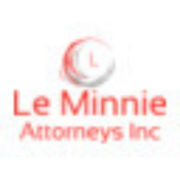Best New Business Formation Lawyers in Malmesbury
Share your needs with us, get contacted by law firms.
Free. Takes 2 min.
List of the best lawyers in Malmesbury, South Africa
About New Business Formation Law in Malmesbury, South Africa
Starting a new business in Malmesbury, a growing town in South Africa's Western Cape, requires a sound understanding of both local and national laws. New Business Formation Law encompasses the legal processes involved in officially establishing a new company or sole proprietorship, complying with regulations, and ensuring the success and legality of your business operations. Whether you’re starting a small local shop, a farm-related enterprise, or a technology startup, following the correct legal channels is essential for long-term success and peace of mind.
Why You May Need a Lawyer
While it's possible to start a small business on your own, there are many reasons why consulting a lawyer can be beneficial:
- Clarifying the best legal structure for your business (e.g., sole proprietor, partnership, private company)
- Registering your business with the Companies and Intellectual Property Commission (CIPC)
- Drafting and reviewing partnership or shareholder agreements
- Ensuring compliance with labour, tax, and municipal by-laws
- Understanding zoning regulations and obtaining necessary licenses
- Protecting intellectual property, such as trademarks or patents
- Resolving disputes or dealing with unforeseen issues during setup
An attorney ensures that all requirements are met, documents are legally sound, and you avoid costly mistakes that could affect your new business.
Local Laws Overview
Malmesbury falls under the Swartland Local Municipality, which means that, alongside national laws, certain local ordinances and by-laws apply. Here are key aspects to consider:
- Company Registration: All businesses must register with the Companies and Intellectual Property Commission (CIPC). Sole proprietors may only need to register for tax purposes with the South African Revenue Service (SARS).
- Business Licensing and Permits: Depending on the nature of your business, you may need specific licenses from the local municipality (e.g., health, trading, or liquor licenses).
- Zoning By-Laws: The municipality enforces zoning laws that dictate where businesses can legally operate. Certain activities might not be allowed in residential zones.
- Tax Obligations: All South African businesses must register for an income tax reference number. Value-Added Tax (VAT) registration is mandatory if your annual turnover exceeds a certain threshold.
- Labour Laws: Employers must comply with national labour legislation, including contracts, minimum wage, and workplace safety.
- B-BBEE Compliance: The Broad-Based Black Economic Empowerment (B-BBEE) framework encourages inclusive economic participation and may affect your business operations and contracts.
Knowing how these local regulations interact with national legal requirements is key in setting up a compliant and successful business in Malmesbury.
Frequently Asked Questions
What is the first legal step to starting a business in Malmesbury?
The first step is to decide on the type of legal entity for your business. Once determined, you must register the entity with the CIPC, and ensure you have a tax number with SARS.
Do I need to register my business if I am a sole proprietor?
Sole proprietors do not need to register with the CIPC but must register as a taxpayer with SARS and comply with other relevant local licensing requirements.
What documents are required for registering a private company?
You’ll need certified copies of ID for all directors, the company’s Memorandum of Incorporation (MOI), and applicable registration forms. An attorney can help prepare these.
What licenses or permits might my business need?
Depending on your business activities, you might need trade licenses, health and safety certificates, liquor licenses, or zoning permits from the Swartland Local Municipality.
How do zoning laws affect my business location?
Zoning laws specify what types of businesses can operate in certain areas. Consult with the local municipality or an attorney to ensure your chosen premises are suitable and compliant.
Do I need to register for VAT?
If your business has a yearly turnover above the current VAT threshold (as set by SARS), registration is required. Voluntary registration is also possible if you’re below the threshold.
Are there special considerations for hiring employees?
Yes. All employers must comply with South African labour laws regarding employment contracts, wages, UIF registration, and workplace health and safety regulations.
Can foreign nationals open a business in Malmesbury?
Yes, but there are additional requirements, such as valid residency or business permits. Consulting a legal professional is strongly advised for foreign nationals seeking to establish a business.
What is B-BBEE, and does it affect my new business?
Broad-Based Black Economic Empowerment (B-BBEE) promotes economic inclusivity. Your company’s score may influence your ability to win certain contracts or access funding, especially with government or large corporations.
How can a lawyer assist with intellectual property protection?
A lawyer can help register trademarks, patents, and copyrights, ensuring your business name and creations are protected under South African law.
Additional Resources
For assistance and information, consider the following resources:
- Companies and Intellectual Property Commission (CIPC): For company registration and intellectual property.
- South African Revenue Service (SARS): For tax registration and compliance.
- Swartland Local Municipality: For local permits, zoning information, and business licenses.
- Department of Trade, Industry and Competition (DTIC): For guidance on investment, B-BBEE, incentives, and support programs.
- South African Chamber of Commerce and Industry: For networking, training, and business support.
Next Steps
If you are considering starting a business in Malmesbury, it’s advisable to:
- Conduct market research and develop a clear business plan.
- Choose the legal structure best suited to your goals and needs.
- Make an appointment with a qualified local attorney experienced in business formation to discuss your plans and ensure compliance with all legal requirements.
- Gather necessary documentation for registration and permits.
- Register your business and obtain all required licenses and tax registrations.
- Seek ongoing advice to ensure continued legal compliance as your business grows.
Professional legal advice provides added security and paves the way for smooth and successful entry into the Malmesbury business community.
Lawzana helps you find the best lawyers and law firms in Malmesbury through a curated and pre-screened list of qualified legal professionals. Our platform offers rankings and detailed profiles of attorneys and law firms, allowing you to compare based on practice areas, including New Business Formation, experience, and client feedback.
Each profile includes a description of the firm's areas of practice, client reviews, team members and partners, year of establishment, spoken languages, office locations, contact information, social media presence, and any published articles or resources. Most firms on our platform speak English and are experienced in both local and international legal matters.
Get a quote from top-rated law firms in Malmesbury, South Africa — quickly, securely, and without unnecessary hassle.
Disclaimer:
The information provided on this page is for general informational purposes only and does not constitute legal advice. While we strive to ensure the accuracy and relevance of the content, legal information may change over time, and interpretations of the law can vary. You should always consult with a qualified legal professional for advice specific to your situation.
We disclaim all liability for actions taken or not taken based on the content of this page. If you believe any information is incorrect or outdated, please contact us, and we will review and update it where appropriate.










